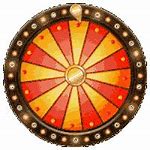
La riquesa natural del món
De fet, a l’interior de tots nosaltres hi resideixen sempre uns valors universals que són connaturals a la vida. Només hem de deixar que emergeixin, perquè creixen sols, com les fors que trepitgem amb les nostres sabates de sola de plàstic.
Si deixem d’estirar les tiges que broten solen i assumim que la riquesa demana temps per fer-se evident, entendrem que el creixement és natural i que l’abundància és la naturalesa del món. No cal que ens inventem que els diners generen diners. N’hi ha pou amb que observem que el planeta on vivim engendra vida, bellesa i riquesa a cada instant.
Top professional Spanish football division
This article is about the top division in men's Spanish football. For top division in women's Spanish football, see
. For other uses, see
The Campeonato Nacional de Liga de Primera División,[a] commonly known as the Primera División[b] or La Liga[c][2] and officially known as LaLiga EA Sports[d][3] since 2023 because of sponsorship reasons, is the top men's professional football division of the Spanish football league system. It is controlled by the Liga Nacional de Fútbol Profesional and it is contested by 20 teams over a 38-matchday period.
Since its inception, 62 teams have competed in La Liga. Nine teams have been crowned champions, with Barcelona winning the inaugural La Liga and Real Madrid winning the title a record 36 times. Real Madrid are also the most recent winners, having won the 2023–24 edition. During the 1940s Valencia, Atlético Madrid and Barcelona were emerged as the strongest clubs, winning several titles. Real Madrid and Barcelona dominated the championship in the 1950s, each winning four La Liga titles during the decade. During the 1960s and 1970s, Real Madrid dominated La Liga, winning fourteen titles, with Atlético Madrid winning four.[4] During the 1980s and 1990s Real Madrid were prominent in La Liga, but the Basque clubs of Athletic Bilbao and Real Sociedad had their share of success, each winning two Liga titles. From the 1990s onward, Barcelona has dominated La Liga, winning seventeen titles to date.[5] Although Real Madrid has also been prominent, winning eleven titles, La Liga has also seen other champions, including Valencia and Deportivo La Coruña.
According to UEFA's league coefficient rankings, La Liga was the top league in Europe in each of the seven years from 2013 to 2019 (calculated using accumulated figures from five preceding seasons) and led Europe for 22 of the 60 ranked years up to 2019, more than any other country. It also has produced the continent's top-rated club more times (22) than any other league in that period, more than double that of second-placed Serie A (Italy), including the top club in 10 of the 11 seasons between 2009 and 2019; each of these pinnacles was achieved by either Barcelona or Real Madrid. La Liga clubs have won the most UEFA Champions League (20), UEFA Europa League (14), UEFA Super Cup (16) and FIFA Club World Cup (8) titles, and its players have accumulated the highest number of Ballon d'Or awards (24), The Best FIFA Men's Player awards (19)[e] and UEFA Men's Player of the Year awards (12).[f]
La Liga is one of the most popular professional sports leagues globally, with an average attendance of 26,933 for league matches in the 2018–19 season.[6] This is the eighth-highest of any domestic professional sports league in the world and the third-highest of any professional association football league in the world, behind fellow big five leagues Bundesliga and Premier League, and above Serie A and Ligue 1.[7][8] La Liga is also the seventh wealthiest professional sports league in the world by revenue, after the NFL, MLB, the NBA, the Premier League, the NHL, and the Bundesliga.[9]
From 2008 to 2016, it was sponsored by Banco Bilbao Vizcaya Argentaria and known as Liga BBVA. Then, from 2016 to 2023, it was sponsored by Banco Santander and known as LaLiga Santander. Since 2023, it has been sponsored by Electronic Arts and is known as LaLiga EA Sports.
The competition format follows the usual double round-robin format. During the course of a season, which lasts from August to May, each club plays every other club twice, once at home and once away, for 38 matches. Teams receive three points for a win, one point for a draw, and no points for a loss. Teams are ranked by total points, with the highest-ranked club crowned champion at the end of the season.
A system of promotion and relegation exists between the Primera División and the Segunda División. The three lowest placed teams in La Liga are relegated to the Segunda División, and the top two teams from the Segunda División promoted to La Liga, with an additional club promoted after a series of play-offs involving the third, fourth, fifth and sixth placed clubs. Below is a complete record of how many teams played in each season throughout the league's history;
If points are equal between two or more clubs, the rules are:[10]
s: Barcelona, Real Madrid and Atletico
In 2009–10, Real Madrid achieved a record 96 points but still finished behind Barcelona, who amassed 99 points. Barcelona then won a third straight La Liga title in the 2010–11 season with 96 points to Real's 92, but Real Madrid ended their winning streak in the 2011–12 season under the management of José Mourinho and with the likes of Cristiano Ronaldo, Ángel Di María, Mesut Özil and Karim Benzema. Madrid won their 32nd La Liga title with a record 100 points, a record 121 goals scored and a record +89 goal difference. The following year, in the 2012–13 season, Barcelona won yet another La Liga title under coach Tito Vilanova, replicating the 100 points record Real Madrid achieved the previous year. Atlético Madrid, under the management of Diego Simeone, won their tenth La Liga title in 2013–14, their first since 1996. They became the first team since Valencia in 2004 to win La Liga and break Barcelona and Real Madrid's dominion over the league.[23] In the 2014–15 season, under the trio of Messi, Neymar, and Suarez nicknamed 'MSN', Barcelona made history by becoming the first team to achieve a second Treble, and winning a sixth Liga/Copa Del Rey double. Barcelona continued their dominance, and in the 2015–16 season they won a back-to-back Liga/Copa Del Rey double, something that had not been achieved since the 1950s.[24] Real Madrid brought back the La Liga title under the management of Zinedine Zidane in 2016–17, but Barcelona won the title again in the 2017–18 season, as well as winning their eighth double,[25] for seven La Liga titles in ten years. Barcelona retained the title yet again and won their 26th La Liga title in the 2018–19 season, for eight La Liga titles in eleven years.[26] Real Madrid reclaimed the title in 2019–20, winning the season that was severely disrupted by the COVID-19 pandemic.[27]
The 2020–21 season started on 12 September, and was won by Atletico Madrid, with Real Madrid as runners-up.[28] In August 2021, La Liga clubs approved a €2.7 billion deal to sell 10% of the league to CVC Capital Partners.[29] The 2021–22 season was won by Real Madrid with four games to spare,[30] while the 2022–23 season was won by Barcelona with four games to spare.
In 2023, La Liga rebranded itself with a new logo and new sponsor. EA (Electronic Arts) replaced the Spanish financial services giant Santander that was the title sponsor of the league for seven years. LaLiga EA Sports and LaLiga Hypermotion are the names of the Primera and Segunda Divisions, starting in the 2023-24 season and for the following four seasons.[31] Following the flash floods disaster that hit Spain at the end of October, claiming the lives of over 200 people, the Spanish league postponed all matches scheduled to be played in the Valencian region on Thursday. The games played after the floods opened in a moment of silence.[32]
20 teams already contest the league in its current season, including the top 17 sides from the 2023–24 season and three promoted from the 2023–24 Segunda División. Leganés and Real Valladolid were promoted directly, and Espanyol won the promotion play-off.
s: Real Madrid dominate but the Basque Clubs disrupt their monopoly
Real Madrid's monopoly in La Liga was interrupted significantly in the 1980s. Although Real Madrid won another five La Liga titles from 1986 to 1990[17] under the brilliance of Emilio Butragueño and Hugo Sánchez, the Basque clubs of Real Sociedad and Athletic Bilbao also dominated the 1980s.[18] Real Sociedad won their first La Liga titles in 1981 and 1982; Luis Arconada, Roberto López Ufarte and Txiki Begiristain stood out from this team. Later, Athletic Bilbao also managed to win two consecutive La Liga titles in 1983 and 1984, also achieving their fifth La Liga and Copa del Rey double in 1984; The stars Andoni Zubizarreta, Santi Urkiaga, Andoni Goikoetxea, Dani, Manuel Sarabia and Estanislao Argote made this success possible. For its part, Barcelona won their tenth La Liga title in 1985 under coach Terry Venables, their first La Liga win since 1974.
Un criteri: els valors
Si ens mirem amb atenció quins són els valors que han prevalgut en això que s’ha anomenat països desenvolupats i que s’hauria de dir països colonials ens adonarem que es tracta d’uns valors absolutament obscens i mancats de tota ètica: explotar, consumir més del que s’és capaç de digerir, aprofitar-se dels altres, trepitjar-los i finalment culpar-los de la seva penosa situació.
Doncs bé, en contrast amb aquesta manera de fer hi brilla la dignitat dels pobres, que sovint amaguen la seva bellesa rere una roba vella i estripada. Si els mirem a la cara veurem que ens miren amb ulls plens de dignitat. Si no els apartem la mirada potser veurem que a través dels seus ulls transparents s’hi aprecia un diamant per polir.
Prosperitat? Desenvolupament?
Quan enlloc de pensar en termes de prosperitat econòmica pensem en termes de valors descobrim el sense sentit de moltes de les activitats que avui en dia considerem desenvolupades. Moltes de les feines que creiem que aporten prosperitat, a la llarga, fan el contrari.
El cert és que bona part de les feines que ofereix el mercat laboral d’avui contribueixen a generar més desigualtat, serveixen perquè s’incrementi la precarietat i enlletgeixen aquest món que tan bonic seria si no li poséssim la a sobre i ens abracéssim a ell.
Vist amb perspectiva podem afirmar que la prosperitat capitalista ens ha portat a ser més pobres. No a tots naturalment, però fins i tots els rics deuen ser infeliços, perquè qui podria estar content si no té la consciència tranquil·la? qui pot viure bé conscient que el seu benestar fa mal als altres? qui es creu que la felicitat individual de les persones està desvinculada de la felicitat del col·lectiu?
Feb La dignitat de la pobresa
Hi ha molta més dignitat en quedar-se pobre i no saber com tirar endavant que en prosperar per mitjà d’establir relacions injustes o contaminants.
En un món com el d’avui, la majoria de les transaccions de diners són asimètriques. Serveixen per que els rics es facin encara més rics i els pobres es tornin cada vegada més pobres. Els diners no són només un bé a l’intercanvi. El diners donen diners.
Però el fet que els diners donin més diners és una autèntica anormalitat. És un impossible. Si tenir diners li dona més diners a algú és perquè aquests diners els perd algú altre. Els diners no floreixen com les flors. Els diners no arriben amb la primavera.
Qualification for European competitions
The top four teams in La Liga qualify for the subsequent season's UEFA Champions League group stage. The winners of the UEFA Champions League and UEFA Europa League also qualify for the subsequent season's UEFA Champions League group stage.
The fifth place team in La Liga and the winner of the Copa del Rey also qualify for the subsequent season's UEFA Europa League group stage. However, if the winner also finished in the top five places in La Liga, then this place reverts to the team that finished sixth in La Liga. Furthermore, the sixth place (or seventh if sixth already qualifies due to the Copa del Rey) team qualifies for the subsequent season's UEFA Conference League play-off round.[12]
The number of places allocated to Spanish clubs in UEFA competitions is dependent upon the position a country holds in the UEFA country coefficients, which are calculated based upon the performance of teams in UEFA competitions in the previous five years. As of the end of the 2023–24 season, the ranking of Spain (and de facto La Liga) is second.[13]
In April 1928, José María Acha, a director at Arenas de Getxo, first proposed the idea of a national league in Spain. After much debate about the size of the league and who would take part, the Real Federación Española de Fútbol eventually agreed on the ten teams who would form the first Primera División in 1929. Arenas, Barcelona, Real Madrid, Athletic Bilbao, Real Sociedad and Real Unión were all selected as previous winners of the Copa del Rey. Atlético Madrid, Espanyol and Europa qualified as Copa del Rey runners-up and Racing de Santander qualified through a knockout competition. Only three of the founding clubs (Real Madrid, Barcelona, and Athletic Bilbao) have never been relegated from the Primera División.
La dignitat de la pobresa
El pobre, sovint, ho és perquè les coses li han anat malament. I de vegades succeeix que les coses li han anat malament perquè les relacions que ha establert amb els altres no han sigut competitives. El pobre és pobre perquè no ha jugat brut, perquè no ha volgut trepitjar als altres. Naturalment, qui no juga es queda fora de joc, perquè el món sencer es mou per les regles que hi imperen. No hi ha gaire espai al marge del capitalisme colonialista que actualment regna les relacions entre els humans.
Així les coses, els pobres d’avui en dia són pobres perquè no han volgut posar-se per sobre de ningú. Els pobres són pobres perquè s’han negat a explotar i contaminar el món per treure’n un partit immediat i generar pobresa a mitjà termini. El pobre és pobre perquè ha preferit cedir i deixar-se atropellar pels vehicles fets d’escombraries que mouen el món d’avui –intel·ligència artificial, en diuen, però això no és més que un oxímoron– que no pas participar d’aquest sense sentit. Els pobres són pobres perquè han preferit permetre que se’ls faltés al respecte que deixar de respectar.
s: Athletic Bilbao dominion
Although Barcelona won the first Liga in 1929 and Ricardo Zamora's Real Madrid won their first titles in 1932 and 1933, it was Athletic Bilbao that set the early pace winning La Liga in 1930, 1931, 1934 and 1936 (in addition to four Copa trophies), and they also achieved the biggest win in La Liga history by beating Barcelona 12-1; This team, coached by Fred Pentland, is known by the nickname First historic squad, notably forming an attacking partnership with Bata, Guillermo Gorostiza, José Iraragorri, Chirri II and Lafuente. In 1935, Real Betis, then known as Betis Balompié, won their only title to date. Primera División was suspended during the Spanish Civil War.
In 1937, the teams in the Republican area of Spain, with the notable exception of the two Madrid clubs, competed in the Mediterranean League and Barcelona emerged as champions. Seventy years later, on 28 September 2007, Barcelona requested the Royal Spanish Football Federation (Spanish acronym RFEF) to recognise that title as a Liga title. This action was taken after RFEF was asked to recognise Levante's Copa de la España Libre win as equivalent to Copa del Rey trophy. Nevertheless, the governing body of Spanish football has not made an outright decision yet.
Stadiums and locations
Location of Community of Madrid teams in























